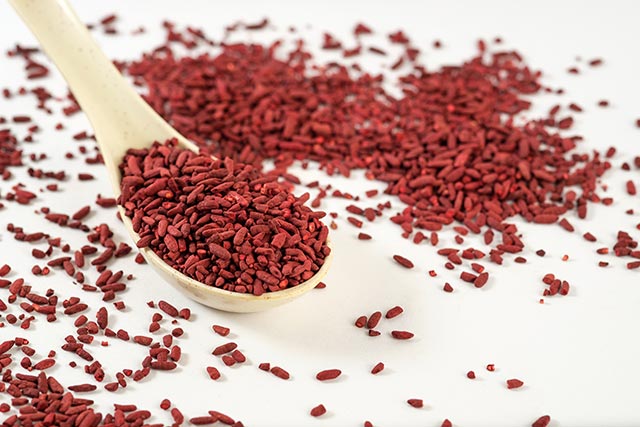TCM’s red sage is lethal to drug-resistant cancer
07/02/2019 / By Michelle Simmons

Researchers continue to investigate the therapeutic potential of natural medicines, such as red sage (Salvia miltiorrhiza). Also known as danshen or Chinese sage, the herb is a popular traditional Chinese medicine with numerous biological activities, including anticancer. In a recent study, a team of researchers from Johannes Gutenberg University Mainz and the Institute of Biotechnology and Drug Research in Germany discovered that the root extract of red sage is toxic to various sensitive and drug-resistant cancer cells.
For the study, the research team investigated the cytotoxicity of red sage root extract and the mechanisms behind its activity. They found that it can induce cancer cell death. The increased cleavage of caspase 3, 7, 9, and poly ADP-ribose polymerase (PARP) confirmed the induction of the intrinsic pathway.
In addition, the researchers reported that mitogen-activated protein kinases (MAPK) were phosphorylated and nuclear P65 was reduced upon red sage root extract treatment. They associated the expression of encoding genes with diverse functions with the cellular response to cryptotanshinone, one of the main components of red sage root extract.
Taken together, the results suggested that red sage root extract has a lethal effect on various sensitive and drug-resistant cancer cells. This cytotoxicity can be attributed to its ability to activate the intrinsic apoptotic pathway. Their study was published in the journal The American Journal of Chinese Medicine.
Red sage protects against prostate cancer
Prostate cancer is the most common type of cancer and the second leading cause of death among male cancer patients in the U.S. The standard treatment for this type of cancer is surgical castration with androgen ablation therapy (ADT) or radiation therapy. However, about 50 percent of prostate cancer patients who receive conventional treatment experience tumor recurrence and progression within five years of treatment completion. Prostate cancer that progresses despite ADT treatment is classified as castration-resistant prostate cancer (CRPC), and the effectiveness of drugs used to treat CRPC is low. Therefore, research on safe and effective treatments for this condition is important.
In a study published in the journal Oncotarget, researchers from Taiwan discovered that red sage and its compounds can protect against prostate cancer. They analyzed the survival rate of more than 40, 000 prostate cancer patients using data obtained from the National Health Insurance Research Database (NHIRD) in Taiwan. They found that patients who used red sage had a five to 10 percent increase in survival rate compared with patients who did not take red sage.
The researchers also examined the effects of red sage on the interaction between macrophages and prostate cancer cells. They found that a bioactive compound in red sage called dihydroisotanshinone I (DT) can prevent the migration of prostate cancer cells. The compound can also weaken the ability of prostate cancer cells to recruit macrophages and reduce the secretion of chemokine (C-C motif) ligand 2 (CCL2) by both macrophages and prostate cancer cells in a dose-dependent manner. In addition, DT suppressed the protein expression of p-STAT3 and decreased the translocation of STAT3 into the nuclear chromatin. DT also inhibited the expression of tumor epithelial–mesenchymal transition genes, including RhoA and SNAI1.
Based on these results, the researchers concluded that red sage can be used in the treatment of prostate cancer. (Related: A common traditional Chinese medicine shows potential in treating oral cancer.)
Learn more about herbal medicines that have anticancer effects like red sage at AntiCancer.news.
Sources include:
Tagged Under: aging, alternative medicine, anticancer, apoptosis, Cancer Cells, cancer cures, cancer treatment, castration-resistant prostate cancer, chinese herb, Chinese sage, cryptotanshinone, cytotoxicity, danshen, disease treatments, herbal medicine, Herbs, longevity, multidrug-resistant cancer cells, natural cures, natural healing, natural medicine, natural treatment, prevention, Prostate cancer, red sage, remedies, research, Salvia miltiorrhiza, TCM, traditional Chinese medicine
RECENT NEWS & ARTICLES
COPYRIGHT © 2017 CHINESE MEDICINE NEWS

















